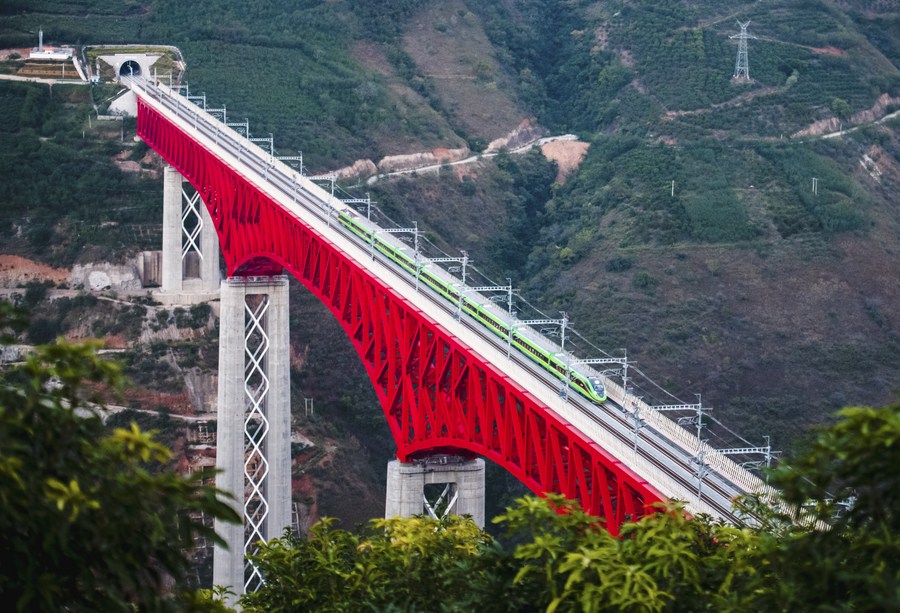Xiconomics: How China's development drives 'growbalization'


On the rails
Thanks to the Belt and Road Initiative (BRI), the Laos-China Railway has been completed and put into operation, and the Lao people have finally realized their railway dream, said Lao President Thongloun Sisoulith.
The importance of transportation cannot be overemphasized. It is the artery of a nation, and of the globalized world. As a popular Chinese saying goes, "Roads lead to riches."
The World Bank has estimated that the China-Laos Railway could significantly reduce land transport prices by 40 to 50 percent between Vientiane and Kunming, and by 32 percent between Kunming and the Port of Laem Chabang in Thailand. As the railway connects Laos to the vast BRI network, including the China-Europe Railway Express, aggregate income in the country could be increased by up to 21 percent over the long term.
Across Eurasia, the China-Europe Railway Express has so far transported goods worth more than 200 billion dollars, greatly contributing to the stability of the international supply chains.
In the past decades, China has both benefited from globalization, and contributed to its development. China's gross domestic product has increased 8.1 percent year on year in 2021, leading the world to recover from the once-in-a-century COVID-19 pandemic.























